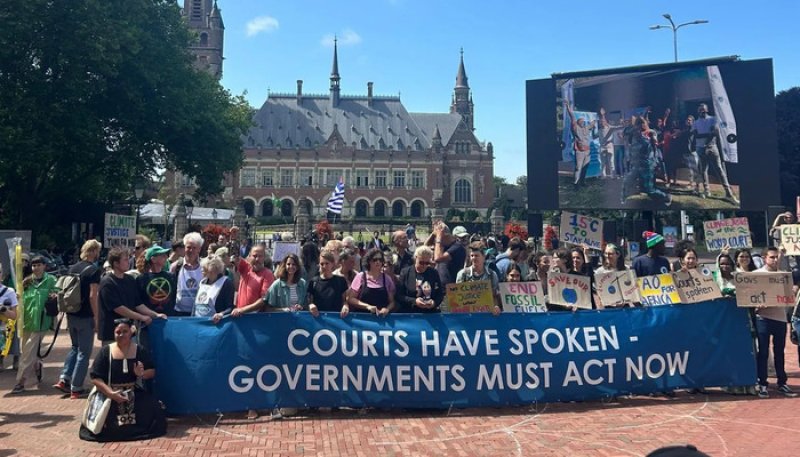
Top UN court says countries can sue each other over climate change

But the judge at the International Court of Justice in the Hague, Netherlands on Wednesday said that untangling who caused which part of climate change could be difficult, BBC reported.
The ruling is non-binding but legal experts say it could have wide-ranging consequences.
It will be seen as a victory for countries that are very vulnerable to climate change, who came to court after feeling frustrated about lack o
An unprecedented case at the International Court of Justice (ICJ) was the brainchild of a group of young law students from low-lying Pacific islands on the frontlines of climate change, who came up with the idea in 2019.
One of those students, Siosiua Veikune from Tonga, was in the Hague to hear the decision.
"I'm lost for words. This is so exciting. There's a ton of emotions rushing through us. This is a win we take proudly back home to our communities," he told BBC News.
"Tonight I'll sleep easier. The ICJ has recognised what we have lived through - our suffering, our resilience and our right to our future," said Flora Vano, from the Pacific Island Vanuatu, which is considered the country most vulnerable to extreme weather globally.
"This is a victory not just for us but for every frontline community fighting to be heard."
The ICJ is considered the world's highest court and it has global jurisdiction. Lawyers have told BBC News that the opinion could be used as early as next week, including in national courts outside of the ICJ.
Campaigners and climate lawyers hope the landmark decision will now pave the way for compensation from countries that have historically burned the most fossil fuels and are therefore the most responsible for global warming.
Many poorer countries had backed the case out of frustration, claiming that developed nations are failing to keep existing promises to tackle the growing problem.
But developed countries, including the UK, argued that existing climate agreements, including the landmark UN Paris deal of 2015, are sufficient and no further legal obligations should be imposed.


